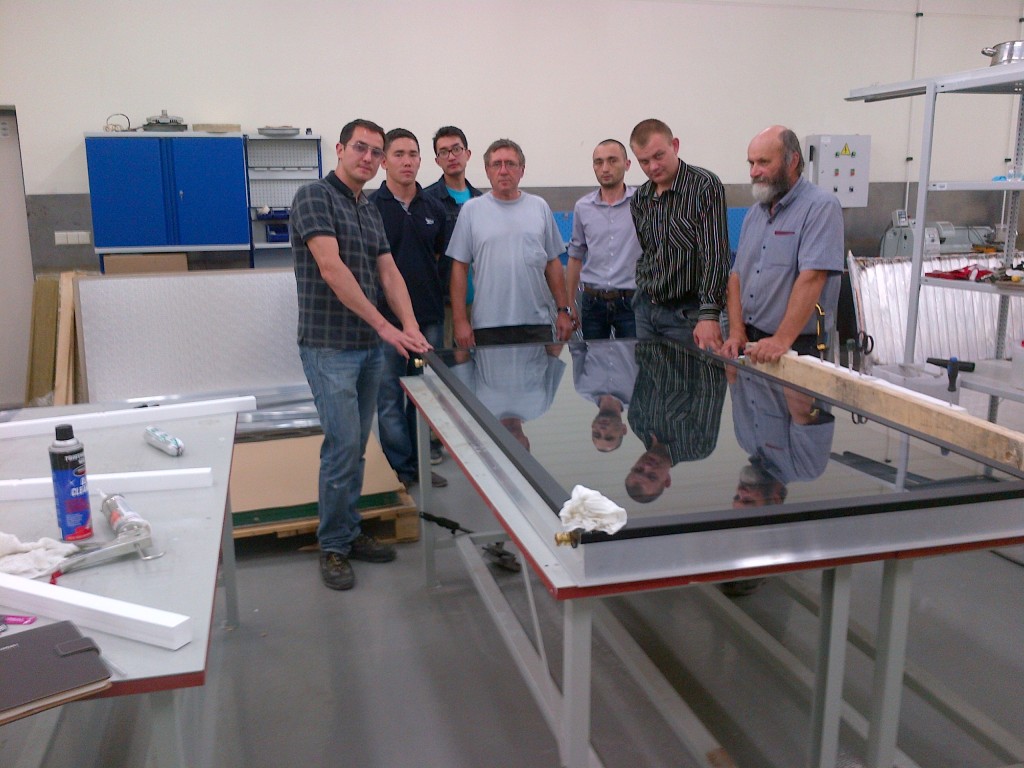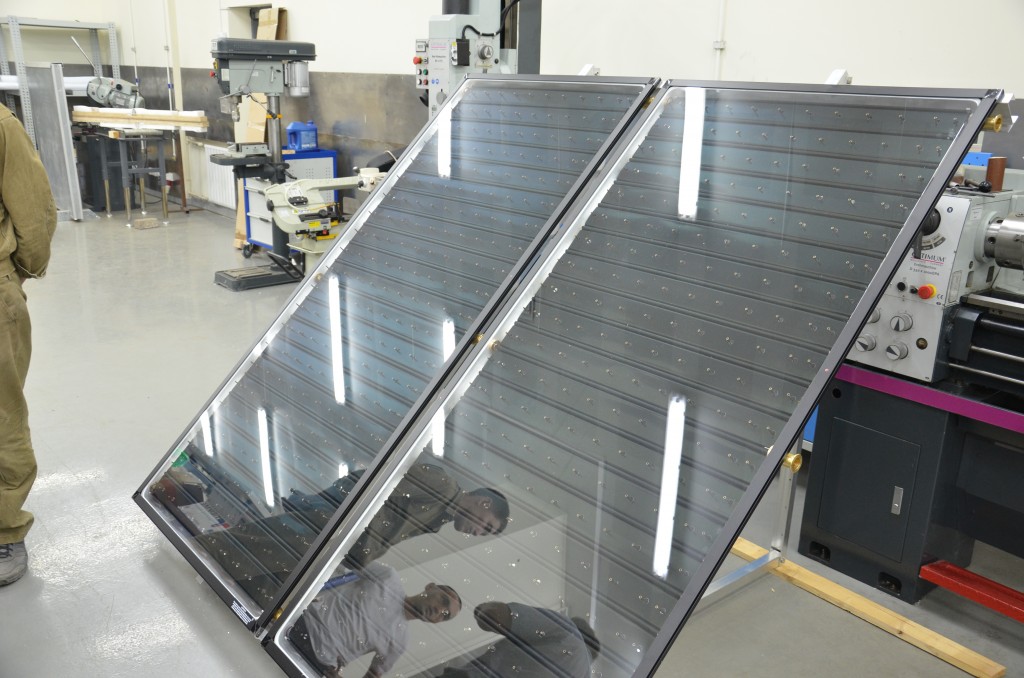ASTANA – At Nazarbayev University, the drive to research and innovate is being balanced and informed by the need to create practical, marketable products – a process that is supported by the university’s Commercialisation Office, launched in the beginning of 2013.
“[The Commercialisation Office] provides administrative assistance (procurement, contracting, consulting, patenting, et cetera) to approved projects, aiming to get them to the working prototype stage,” Daniyar Zhumagulov, director of the Commercialisation Office, told The Astana Times on April 2.
In the process, he said, a scientist will describe his or her innovation in an application for financing. “We have formal rules that govern financing commercialisation projects initiated by Nazarbayev University scientists, and a special commission that reviews the applications,” Zhumagulov notes. Applications are subject to external, independent review and given scores that are taken into account by the commission that decides on funding.
If a project is accepted for funding, the Commercialisation Office then offers an administrative hand to the scientists, helping them approach the stage where they might interest a business, and then bring the business community into the mix when there is a working prototype to show them or to produce, he said.
The Commercialisation Office is part of the university’s Innovation Intellectual Cluster (IIC), which consists of the Commercialisation Office, the Business Incubator, the Prototyping Centre, the Technopark and the Research Park. “The cluster is designed to create favourable conditions for innovators, assist in introducing the results of research and development to the market, and form a ring of research-intensive and high-technology companies around Nazarbayev University. It must also create a favourable environment for researchers, attracting investments to new technology research within Nazarbayev University, developing engineering potential in Kazakhstan, fostering transfer and commercialisation of cutting-edge technologies and creating jobs for Nazarbayev University alumni,” the IIC website says.
Technopark Director Diaz Baisseitov says their efforts are beginning to see results. “One of the projects we are proud of is a novel battery type (Li-Sulfur and Li-aqueous) developed by our team of scientists led by Professor Zhumabai Bakenov. Compared to conventional batteries, it holds up to 10 times more energy and withstands far more recharging cycles.” The batteries are also cheaper to produce, he said, and the sulfur-based battery has also been designed to use the huge amounts of sulfur waste produced by oil refineries in western Kazakhstan, thereby providing a solution to an ecological problem. The two types of battery are currently being patented and produced on the small scale; production will be scaled up into larger consumer packs by the end of the year, he said.

The KunTech team, funded by Nazarbayev University’s Commercialisation Office, work on their solar thermal collection panels.
“The project received strong interest from national companies such as KazAtomProm and Samruk Energy as a means of replacing bulky lead acid batteries, the price, weight and size of which hinders renewable energy accumulation,” he told The Astana Times.
Baisseitov himself led another project through the Commercialisation Office, this one to produce flat solar thermal collectors with efficiency rates of up to 90 percent, as opposed to 15 percent for photovoltaic devices, he explained. The KunTech start up produces the heat collectors through a technology developed in cooperation with Western partners that uses locally produced components. “This allows for a cost in Kazakhstan [that is] half the selling price of such a device in Europe,” Baiseitov said. “The project is mainly driven by the push towards renewable energy sources in Kazakhstan, sprung in 2012 by the President Nursultan Nazarbayev’s legislative initiative to follow green economy principles, as well as the decision to hold EXPO 2017 in Astana.”
This year, the devices are being assembled manually, but in the next two years, a full production line using local resources and labour is to be set up. “In October 2014, the project won the KazINNO Energy competition organised by the National Agency for Technological Development (NATD). The prize was an acceleration programme in Silicon Valley, along with participation in the CleanTech Open Global Forum, the world’s largest accelerator of projects in the field of energy efficiency and resource conservation,” Baisseitov said. As the devices can help save more than half of annual heating costs, they are already attracting interest from industries and homeowners, he reported.
Nazarbayev University’s Commercialisation Office collaborates with some other similar projects in the country, Zhumagulov said, in particular the Technology Commercialisation Centre (TCC) in Astana under the Ministry of Education and Science and World Bank. Nazarbayev University scientists have received funding through the TCC’s grant competition, which is currently supporting projects by Nazarbayev University researchers on making batteries, developing current stabilisers and developing industrial robots and software to operate them, TCC Lead Expert Erik Azulay told The Astana Times. He also reported that the two organisations will be working together more closely in the future: the university and the TCC are working on a programme to have Nazarbayev University business students work on some of the TCC’s commercialisation projects to get hands-on training in providing market analysis, business development, commercialisation strategies and other aspects of matching technologies to markets.

